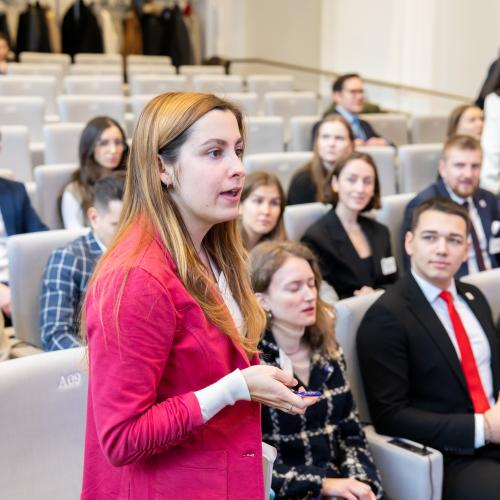She emphasised the need for better education on disaster response and policies that address the needs of marginalised groups, including persons with disabilities, LGBTQ+ individuals, and low-income groups. At the EU Youth Policy Dialogue, she advocated for gender equality and a more community-driven approach to crisis preparedness.
Making preparedness more practical
One issue that stood out to Cecilia during the dialogue was the lack of disaster education in schools and communities. She said that many people don’t know what to do when a disaster happens because they were never taught how to prepare.
“There is a huge gap in how we educate people about risk and crisis preparedness. Without practical knowledge, communities cannot effectively respond when disasters strike.”
She also pointed out that crisis response is often not inclusive enough. When disaster plans fail to consider the needs of marginalised communities—such as women, LGBTQ+ individuals, disabled people, or those with low incomes—the overall response becomes weaker. These groups often face unique challenges during crises, including caregiving responsibilities, limited access to healthcare, and higher exposure to risks such as gender-based violence. Cecilia emphasised that preparedness plans must address these realities through inclusive policies and targeted support.
“The EU should work more closely with community groups and NGOs. These organisations already connect with young people and vulnerable communities. They can help make preparedness efforts stronger and more effective.”
Cecilia believes young people play a key role in crisis preparedness. She explained that they are already leading environmental movements, fighting for equal rights, and using digital tools to share information.
Fighting disinformation
One of the most important discussions at the event, according to Cecilia, was about disinformation. Many participants pointed out how false information spreads quickly in times of crisis and often targets vulnerable communities.
“We are seeing an increase in disinformation campaigns, which are even more dangerous during crises. They disproportionately target vulnerable groups and make it harder for people to access reliable information. The EU must take the lead in countering this.”
For Cecilia, the Youth Policy Dialogue was a powerful experience. She left the event more convinced than ever that disaster preparedness must be inclusive and that young voices are essential in making that happen.
